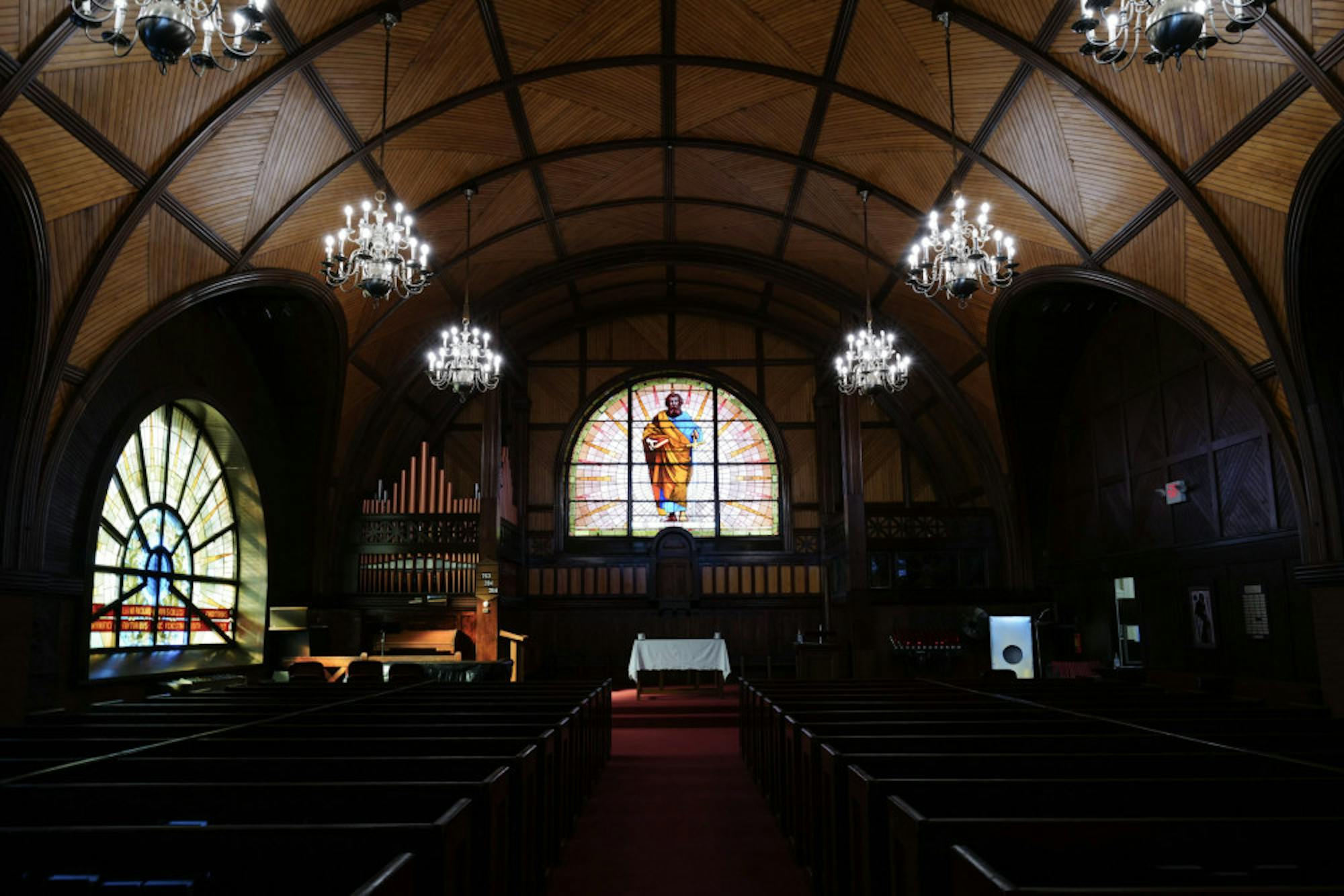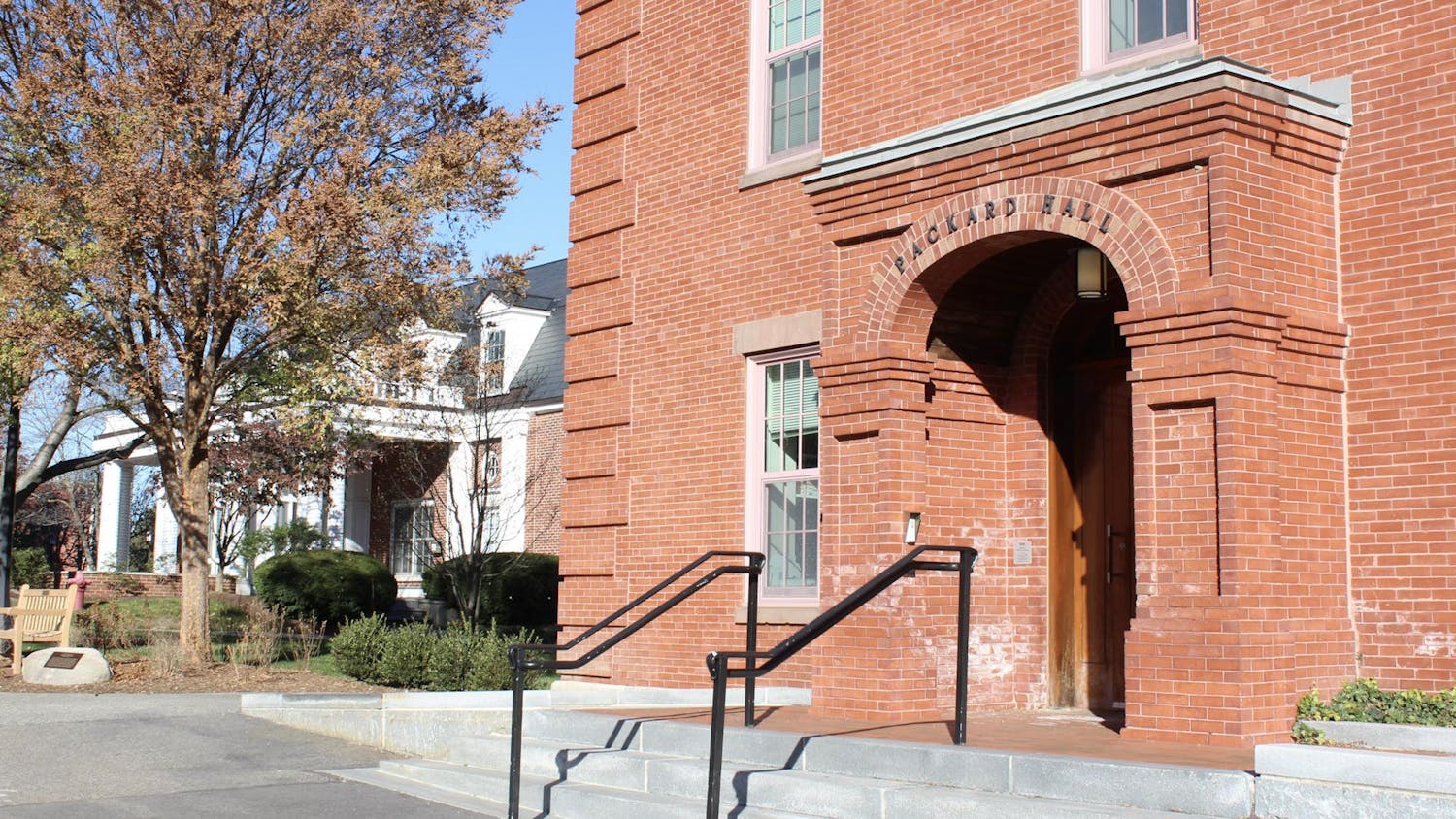The University Chaplaincy offered a multifaith “Spirituality, Community, and Mental Health” event on Oct. 6 as part of President Monaco’s Mental Health Awareness Week. At the event, led by several members of the chaplaincy staff, participants discussed practices relating to mindfulness, resilience and well-being.
University Chaplain Rev. Elyse Nelson Winger explained why the chaplaincy chose to offer a group-based event during Mental Health Awareness Week.
“We wanted to create a space for our community members to share spiritual and religious practices and traditions that contribute to their own resilience and renewal, and to lift up the value of community itself for supporting our communal and personal well-being,” Nelson Winger wrote in an email to the Daily.
The event was formatted as a People’s Supper, following a model that has been used by the chaplaincy for several past events.
“The model [of People’s Supper] is storytelling and small group-discussion based,” Nelson Winger wrote. “In the wake of the 2016 election, Tufts alum, the Rev. Jen Bailey, launched the People’s Supper model through Faith Matters and other partner organizations to bring people together across [differences].”
Nearly all members of the University Chaplaincy staff were present to help guide discussion. Muslim Chaplain Najiba Akbar and Catholic Chaplain Lynn Cooper, who could not attend the event, offered written reflections with selected passages for attendees to read and take with them.
Buddhist Chaplain Ji Hyang Padma introduced the event by reading the poem, “The Opening of Eyes” by David Whyte, reflecting on what the poem means to her.
“For me, that poem represents something about resiliency, our ability … to fall in love with the solid ground of our lives, … bringing our awareness and reconnecting with who we are, and with what we're doing here,” Padma said.
Padma connected her reflection on resiliency to principles of neuropsychology, explaining how some spiritual practices like meditation or music help with emotional regulation.
“There are practices that support … vertical integration, which is through the body … so that we have a good weaving of body-mind,” Padma said. “So things like dance, or yoga or meditation … all of these really help vertical integration.”
Protestant Chaplain Dan Bell, Humanist Chaplain Anthony Cruz Pantojas and Hindu Chaplain Dr. Preeta Banerjee each shared a brief reflection on practices that they participate in to promote mindfulness.
“It might be walking in nature and just appreciating the beauty of creation,” Bell said. “It might be in prayer and stopping and thinking about all the good things I have in life, my family, my friends, my health, and it might be an actual activity. … Whatever practice of gratitude you might find meaningful in your life, I think that is … an important way to build resilience and to find wellbeing for ourselves.”
Cruz Pantojas reflected on well-being as a contextual practice for each individual.
“No one person, institution, theory or framework can fully discern how I’m moving, existing and being in the world,” Cruz Pantojas said. “I am constantly being invited to discern: ‘Where is my well-being?’ ... I hope that as you learn, from all of us tonight, different concepts of well-being, … you question: ‘Where are my inter- and intrapersonal invitations?’”
Banerjee reflected on the practice of wonder and appreciating beauty in our world, which inspired her to bring incense and incense holders, made by her children, to the event to share with attendees.
“I feel like beauty and dreaming and wonder, which we talked a lot about with Valerie Kaur, is really my offering,” Banerjee said. “I went to three Indian stores, and none of them had [incense holders] ready made. … So I got the clay, and it became a beautiful moment with my children. … Things happen, and … each time there is some beauty in the bad or the good.”
Discussions then commenced in small groups at dinner tables, where participants were asked to reflect on places they go to restore themselves, as well as practices and strategies they use to cultivate resilience and well-being in their lives.
“The goal of the discussion, I hope, is an experience of being listened to and of deeply listening,” Nelson Winger wrote. “We hope to create a space with these meals for authentic dialogue and reflection that is rooted in learning from one another.”
Participants were also reminded of resources offered through the chaplaincy to help promote wellbeing and mental health. Nelson Winger emphasized that the chaplaincy is always willing to support members of the Tufts community, noting that the chaplains are LGBTQ affirming and confidential resources.
“All of our chaplains offer pastoral, or spiritual, care to members of the Tufts community,” Nelson Winger wrote. “We are here to listen to and accompany students as they celebrate joys and process struggles, as they ask questions about their own spirituality or practice, as they reflect on their identities and relationships.”






